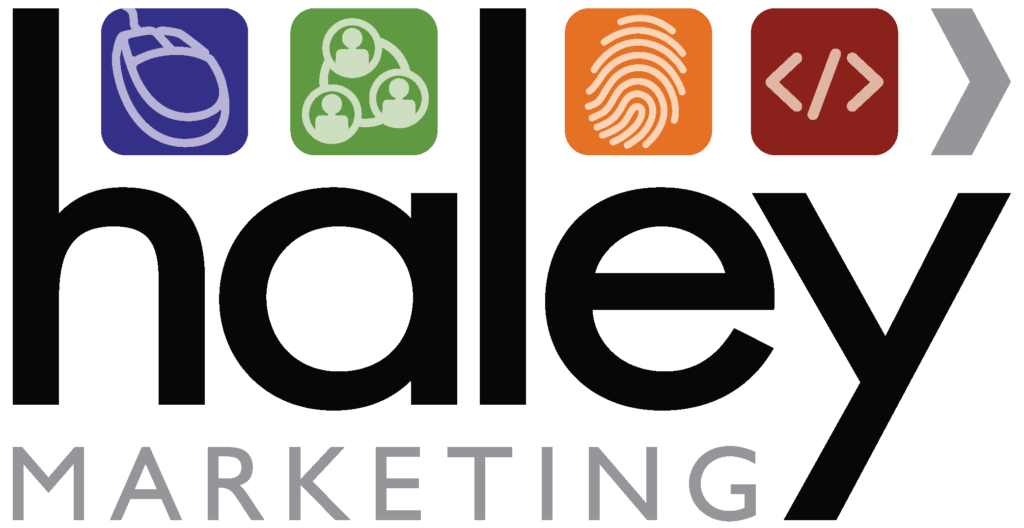In the dynamic landscape of recruitment marketing, your job advertising strategy cannot just be a “set-it-and-forget-it” mentality; it’s an ongoing process that demands attention and adaptation throughout the month in order to maximize your return on investment. Unemployment is still at 50-year lows, meaning recruiting hasn’t gotten any easier, and companies need a more in-depth strategy for their job advertising efforts. As companies strive to attract top talent in a competitive market, the significance of actively managing job advertising on platforms like Indeed and ZipRecruiter cannot be overlooked.
Here’s why:
- Adapting to Changing Industry Competition: The Recruitment Marketing industry is ever evolving, with new players entering the market and existing ones refining their strategies. Throughout the month, the level of competition in your specific market can shift, impacting the visibility and effectiveness of job postings. At Haley Marketing, we see this all the time, here is some data from one of the healthcare clients we manage job advertising for:
February 1st– 15th: 518 applications, $7.01 CPA
February 16th – 29th: 599 applications, $5.55 CPAIt is easy to see that the second half of the month was more efficient from a cost-per-application (CPA) standpoint, and if you have data from past months, you would be able to see that this is a common trend for this particular client. Knowing that, we can adjust our strategy throughout the month to capitalize on the weaker competition in the market during the second half of the month. If someone isn’t monitoring these efforts though, this insight may never have been discovered and used as an opportunity to improve.
- Aligning with Recruiting Goals and Needs: Companies’ recruiting goals and needs can evolve rapidly, especially in industries characterized by seasonal fluctuations or sudden shifts in demand. An effective job advertising strategy should align closely with these changing priorities. By managing job advertising throughout the month, recruiters can ensure that their efforts remain in sync with the organization’s overarching objectives. Whether it’s ramping up hiring for a new project or scaling back in response to changing market conditions, ongoing management allows for greater flexibility and responsiveness.
- Optimizing Ads Based on Real-Time Data: Data-driven decision-making lies at the heart of successful recruitment marketing strategies. Throughout the month, recruitment marketers gather valuable insights from job advertising platforms, including metrics on conversion rates, cost-per-clicks, and cost-per-applications. By analyzing this data consistently week-to-week, recruiters can identify trends, pinpoint areas for improvement, and optimize their job ads to maximize their impact. Whether it’s refining overall strategy, A/B testing different ad formats, or adjusting bidding strategies, ongoing management ensures that advertising efforts remain finely tuned for optimal results.
- Staying Ahead of the Curve: In a fast-paced recruitment landscape, timing is everything. Job postings that languish for too long without updates or adjustments risk becoming stale or overlooked by potential candidates. By managing job advertising throughout the month, recruiters can stay ahead of the curve, ensuring that their postings remain fresh, relevant, and engaging. Whether it’s refreshing content, adding new keywords, or experimenting with different ad formats, proactive management helps recruiters maintain momentum and keep their opportunities in the spotlight.
There are several different factors and variables that go into effective job advertising, which is why having someone regularly managing these efforts is so valuable. By actively managing job advertising efforts throughout the month, you can stay ahead of the competition, align with new goals and developments, optimize ads based on real-time data, and maintain a competitive edge in the quest for top talent. In a environment where every advantage counts, the importance of proactive job advertising management cannot be overstated.
Top of Form
The Pros and Cons of Different Application Methods”
One critical aspect of companies’ Recruitment Marketing strategy is their preferred choice for their job postings’ application method. What do I mean when I say application method? On most job boards, like Indeed and ZipRecruiter for example, when sponsoring jobs you have a choice of what application method to use on your job ads.
The first is a Quick Apply. This refers to when a job seeker can apply directly on the job board or site, they are on with a few quick clicks. Job boards will typically have the candidates’ profile information included in the application, and the job seeker has the choice to upload a resume and cover letter.
The second application method is known as a Company Apply. This is when a candidate clicks on your job posting on a 3rd party site and is redirected back to your website or Career Portal to apply. This allows employers to use their own application form to get more in-depth information from the candidate.
There isn’t a concrete “right” answer for which application method your company should be using. It depends on different factors that are specific to your company, and what the rest of your Recruitment Marketing strategy consists of. Below, we go over some of the Pros and Cons of using the two different application methods.
Quick Apply:
Pros:
- Efficiency: Quick Apply streamlines the application process, allowing candidates to submit their resumes with minimal effort. This simplicity encourages more applicants to apply, potentially widening the talent pool.
- Convenience: Candidates appreciate the convenience of Quick Apply, especially when they’re exploring multiple job opportunities. With just a few clicks, they can express interest in a position without the hassle of filling out lengthy forms. Candidates can elect to include their profile resume in applications, which creates an easy and consistent process for them as they only have to upload their resume one time.
- Increased Response Rate: The ease of Quick Apply often leads to a higher response rate from candidates. This allows recruiters to engage with a larger pool of potential hires quickly, expediting the hiring process. We generally see higher conversion rates for jobs that are opted for Quick Apply, and this could potentially lead to lower cost-per-applications for your company.
Cons:
- Quality Control: While Quick Apply attracts more applicants, it may also result in a higher volume of unqualified candidates. Sorting through numerous applications to find the right fit can be time-consuming and resource-intensive for recruiters.
- Limited Information: Quick Apply typically collects only basic information, such as resume and contact details. This lack of comprehensive data may hinder recruiters’ ability to assess candidates thoroughly. This is even more true for jobs that require higher qualifications, or specific certifications in order to be hired, such as a Registered Nurse, or a Class A Truck Driver.
Company Apply:
Pros:
- Customization: Company Apply enables recruitment markers to tailor the application process to specific job requirements. By incorporating tailored questions and assessments, recruiters can gather deeper insights into candidates’ qualifications and suitability for the role before they even have an initial conversation or interview.
- Branding Opportunity: Redirecting candidates to the company’s website or application portal presents an opportunity to showcase the employer brand. A well-designed application platform reinforces the company’s professionalism and values, potentially attracting top-tier candidates.
- Quality Assurance: By requiring candidates to navigate through a dedicated application process, recruiters can ensure a higher caliber of applicants. This approach discourages casual applicants and encourages serious candidates who are genuinely interested in the position. The Company Apply application method also allows for more use of pre-qualification and post-apply questions that can be used to gain more information about specific candidates who apply.
Cons:
- Friction: Requiring candidates to navigate away from the job board to complete the application process introduces friction. Some candidates may abandon the application midway due to the additional steps involved, leading to a drop in conversion rates, and possibly to some of your budget being used without ever receiving an application.
- Time-Consuming: The Company Apply method may deter candidates who are looking for a quick and effortless application process. This could result in missed opportunities to attract potentially qualified candidates who prefer a more streamlined approach.
- Decreased Response Rate: Historically, conversion rates are much lower for jobs that are using a Company Apply application method. This may then lead to certain job ads receiving higher cost-per-applications, meaning you may need to spend more to get a sufficient number of applies for a job order.
Both Quick Apply and Company Apply methods offer distinct advantages and drawbacks in the recruitment process. Recruitment marketers should carefully evaluate their hiring needs, candidate pool, and employer branding strategy to determine which approach aligns best with their objectives. Balancing efficiency with quality is key to optimizing the application process and attracting top talent in today’s competitive job market.
Finally, make sure you have someone monitoring your job advertising performance with one or both application methods being used. Once enough data and applications are received, you can use that data to decide which application method leads to the most ROI for your company.
Are you ready to learn more about how Haley Marketing and the recruitment marketing team can help drive improved results from your job advertising budget? Contact our team today to learn more and set up a free recruitment marketing consulting call!

